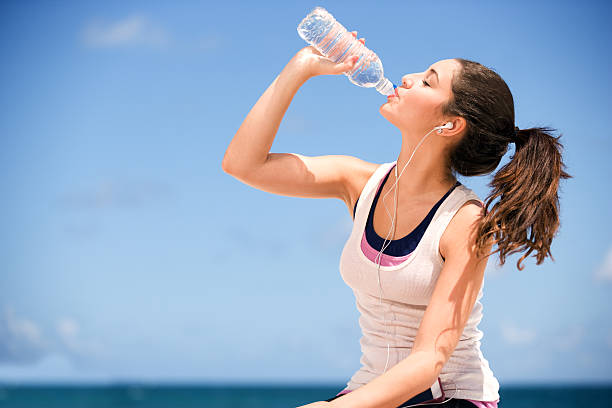You can survive for up to 50 days without food but only about two to three days without water. Water is vital to our bodies, and we can live for 50 days without food, but only two to three days without water. The majority of this will be from fluids, but some will be from solid or liquid foods.
The daily average of 2.5 litres is an estimate. It depends on many factors.
- Age
- Sex
- Weight
- Height
- Level of data-placement=”bottom” data-toggle=”tooltip” title=””>physical activity
- Climate & Temperature
Water is essential for our bodies.
As we age, our bodies lose water. The elderly have 55%, while the newborns have 75%. On average, adults have 60% water in their bodies.
Where is the water stored in your body? One-third of the water is found in our blood and between our cells. The majority, however, is stored in our cells.
Your body can become dehydrated and affect many bodily functions. Water regulates everything.
- The temperature of the body
- Regulation of hormones
- Stimulation of energy expenditure
- Blood thickness
- Skin moisture
- data-placement=”bottom” data-toggle=”tooltip” title=””>Cell longevity
- Positive digestion
- Cushion function for the spine, brain and eyes
- Waste product elimination
The body constantly loses water through sweat, urine, faeces, and breath. We lose even more water if we are ill through vomiting and diarrhoea, so this increases our data-placement=”bottom” data-toggle=”tooltip” title=”>risk of dehydration.
Are you thirsty?
Our bodies have a great way to tell us if we are dehydrated because water is vital for survival. Thirst. Thirst is a sign that you are thirsty.
Ever wonder how your body detects when you are dehydrated? Receptors in our brain measure blood consistency and respond if it becomes thinner. Vasopressin, a hormone, is released into the system. Vasopressin helps us retain more water by retaining it in our kidneys and inducing a feeling of thirst.
To double-check your hydration status, you can look at your urine colour. If your urine turns a light yellow, you are hydrated. However, if it turns dark yellow, you are dehydrated.
The body’s inability to retain enough water can lead to dehydration. This is dangerous. We lose 1% of our body’s water and have less energy to exercise, lower body temperature control, and less appetite. A loss of 5% in water can lead to mental decline, including difficulty concentrating, insomnia, sleepiness, and headaches. If we lose more water than 8%, our mental performance can drop to 5%. This could lead to problems with concentration, irritability and sleepiness.
Are you ever so focused or busy that you forget to drink?
- Dry, sticky mouth
- Muscle cramps
- Headache
- Dry skin
- Tiredness
- Loss of concentration
Too much water
Water is a subject where more is not always better. Drinking too much water can lead to hyponatremia (water intoxication). You can get water intoxication, or hyponatremia, from drinking too much. We need to drink lots, especially when we exercise in hot conditions and for extended periods (e.g. Long-distance running and marathons are good examples of this. A lot of fluid is lost through sweat. Salt loss from sweat can also cause cramps or exhaustion. It is important to consume isotonic beverages, which contain sodium, corresponding with our body’s fluids.
The best water sources
It is easy to consume more fluids daily. You can hydrate with any drink, not just plain water.
TIP: There are many ways to make plain water more appealing. You can add ice cubes, lemon slices, cucumber, mint, or berries to make it refreshing.

